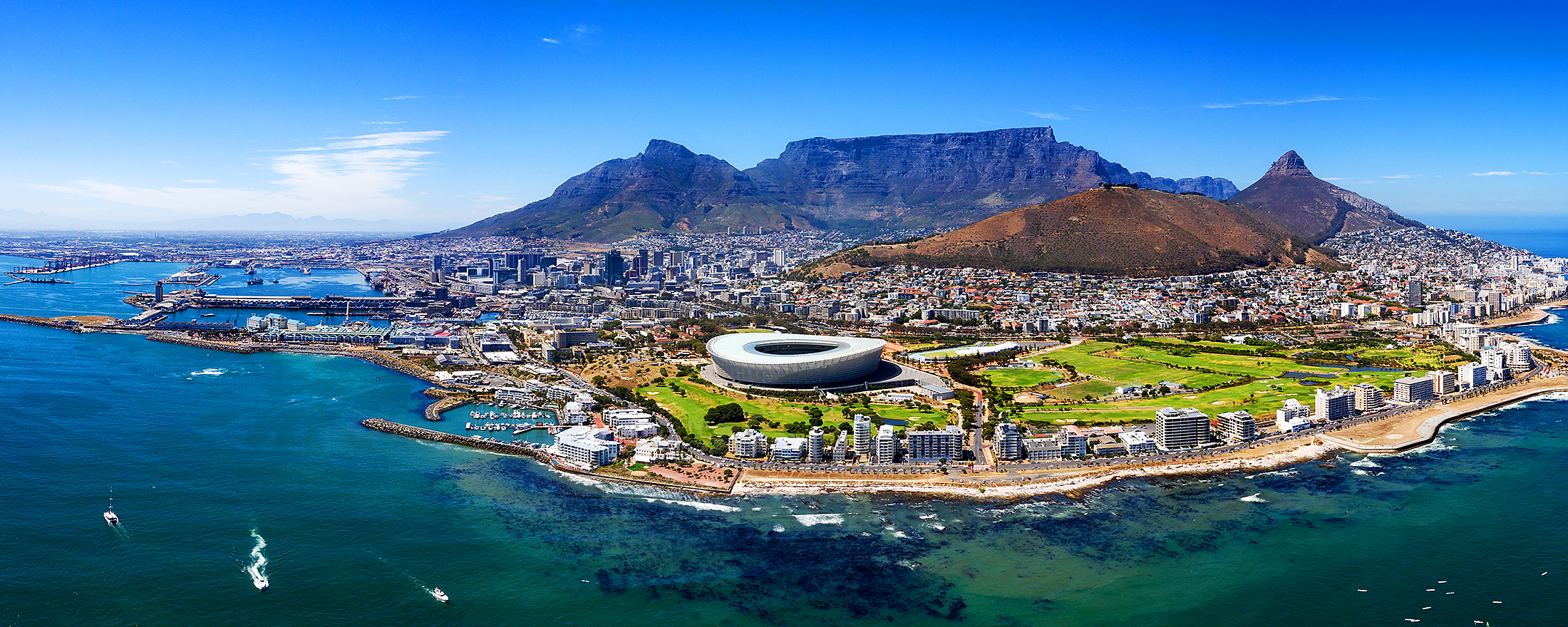South Africa is an energetic and multiethnic nation. From vibrant Johannesburg and Cape Town to safari adventures in Kruger National Park, South Africa provides something for every traveler.
Experience Table Mountain, relax on its lush beaches, visit Robben Island and sip wine on the Cape Peninsula while you gain a deeper insight into South Africa’s past at museums like Apartheid Museum or Soweto Townships.
Destinations and Regions
Archbishop Desmond Tutu once famously dubbed South Africa “the Rainbow Nation”, with its abundant wildlife and extraordinary environments and vistas. Not to mention it boasts rich history and culture as well as some of Africa’s most vibrant cities.
Cape Town, with its breathtaking view of Table Mountain and stunning waterfront location in Western Cape region is a popular tourist spot. Home to several cultural experiences – apartheid museum and Constitution Hill are popular highlights – that shed light on South Africa’s struggle against segregation.
Other must-see destinations in South Africa include Johannesburg (commonly referred to as Jo’burg), which serves as both the economic engine and vibrant heart of South Africa; Durban – a beachside city with strong Indian influences; and Kruger National Park, an extensive wilderness reserve where travelers can spot big game, such as the Big Five. Travelers should note that peak safari season runs between December and February; inland regions tend to offer pleasant Mediterranean temperatures year-round.
Cultural Experiences
South Africa boasts not only stunning wildlife and breathtaking vistas, but it is also rich in cultural experiences. Its vibrant cities showcase heritage, cuisine, and customs while rural villages can introduce people to medicinal plants or traditional hunting techniques.
For those interested in understanding human history, Gauteng is an ideal destination. Made famous after fossils dating back 3.5 million years were discovered here, visiting Gauteng will offer an illuminating lesson about our evolution and journey towards modern humanity.
Attractions to explore in Johannesburg include the Apartheid Museum (Johannesburg), which provides an insightful view into its dark past. Also visit Soweto, made infamous by police firing on 10,000 students on June 16, 1976 during their uprising. Cobbled streets and charming historic homes serve as poignant reminders of just how far this once divided nation has come; conversely, responsible tour operators can provide opportunities for interaction such as community projects.
Wildlife and Nature
South Africa, also dubbed by Archbishop Desmond Tutu as the Rainbow Nation, boasts incredible wildlife and environments and vistas that rival any country on the globe. National parks and reserves in South Africa boast abundant animal species like Archbishop Desmond Tutu’s famous “Big Five,” over 507 bird species, 147 mammals and 114 reptile species!
Kruger National Park offers visitors a chance to view all five Big Five animals; Madikwe and Phinda provide opportunities for predator encounters; you may also see cheetahs and wild dogs during drives in Kgalagadi Transfrontier Park; Hluhluwe-Imfolozi/uMkuze are good destinations to spot all seven Big Seven (lion, leopard, buffalo elephant giraffe rhino and spotted hyena).
Cape Town provides wine farm visits, scenic hikes along Table Mountain and excursions to Robben Island where Nelson Mandela spent time as an exile. Johannesburg features restaurants of various calibers–from fine dining establishments like Nobu (meat cooked over an open flame) to local specialities like Shisa Nyama. And in Great Karoo semi-desert region old wooden windpumps dot the landscape, providing access to various landscapes and plants such as towering baobab trees, tall Natal mahogany and narrow-trunked sickle bush species.
Outdoor Adventures
South Africa is home to iconic wildlife, breathtaking environments and vistas, world-class hotels and an abundance of thrilling activities. Travelers are drawn here for its Cape Town and Big Five safaris but it also makes an excellent place for hiking, horseback riding and discovering ancient rock art sites.
Vibrant cities like Johannesburg and Durban provide an engaging urban atmosphere with cultural attractions, dining options, and nightlife to satisfy any traveller. Enjoy Cape Town’s seafood delights or try shisa nyama (meat served on a stick) in Johannesburg; then ride one of the world’s most spectacular chair lifts or visit one of South Africa’s hidden bars tucked inside an ancient baobab tree!
Spring in South Africa is ideal for outdoor adventures, with moderate temperatures, lush vegetation and increased chances of seeing wildlife at national parks and reserves that tend to be less densely vegetated. Plus you’ll witness Namaqualand in Northern Cape’s spectacular wildflower displays!
Practical Travel Tips
South Africa boasts an array of stunning landscapes. From sandy coastlines to rugged mountain ridges, hiking trails offer visitors a chance to immerse themselves in this vibrant culture.
South Africans are famously friendly and welcoming people, while Cape Town stands out as particularly multicultural with a diverse population that celebrates its heritage through music festivals like AfrikaBurn and an annual parade for gay rights known as MCQP (Mother City Queer Project).
There’s also an active arts scene, with galleries and studios providing visitors a glimpse into contemporary African art. Moving about is straightforward; intercity buses operate regularly between major cities while trains cover longer routes – although travelers may prefer renting a car as this offers greater flexibility – particularly to get to remote regions like Drakensberg mountains or Kruger national park, although car rentals may be costly in this part of the world. Credit cards are widely accepted; it may be prudent to carry cash as unexpected expenses may arise.
Accommodation and Dining
South Africa boasts a diverse selection of accommodation, ranging from luxurious villas and five-star hotels to family-friendly safari lodges and comfortable guest houses – there is something suitable for every traveler in South Africa! However, it should be noted that luxury lodging costs in South Africa tend to be significantly more than in Europe or North America.
For an authentic natural experience, South Africa’s coast offers stunning beaches and world-class surf breaks. Additionally, Kgalagadi Transfrontier Park attracts herds of wildebeest from Botswana into its vast dry plains for viewing pleasure.
Cape Town, with its boutique hotels and B&Bs and iconic backdrop of Table Mountain, provides an ideal location for exploring its surrounding wine regions of Stellenbosch and Franschoek as well as day trips to Robben Island – where Nelson Mandela spent nearly two decades imprisoned – or traveling inland to visit Great Karoo semi-desert where old wooden windpumps dot the landscape alongside wild and domestic animals, plus battlefields from Zulu kingdom warfare as well as Boer-British wars battlegrounds well preserved battlefields from both kingdom wars as well as Boer-British wars – an ideal combination!
Travel Logistics and Transportation
Travel to South Africa is generally straightforward, offering numerous international flights and an efficient network of roads and flights within its borders. Most visitors opt to rent cars to navigate around, although public transport and transfers offered by hotels also make touring South Africa possible.
Bring cash when dining, as not all restaurants accept credit cards. If necessary, insist on having your credit card swiped instead of being swiped under the table as there have been reports of card cloning in South Africa.
South Africa is best experienced between June and September during its dry winter season with reduced bush coverage and easier wildlife sightings in Kruger National Park. You’ll also find Cape Town to be an absolute joy at this time, offering sunny skies and temperatures ideal for hiking up Table Mountain, strolling Kirstenbosch Botanical Gardens, relaxing on beautiful beaches or learning about apartheid at Robben Island’s Apartheid Museum and its archives.
Conclusion
Visit South Africa and experience wine tasting on one of the many vineyards located within its famous Stellenbosch/Franschhoek region. A day tour will allow you to travel between vineyards while sampling an assortment of wines while learning more about its rich history.
Cape Town and Johannesburg offer an extraordinary cultural mix. Gain more insight into South Africa’s turbulent past at sites like District Six Museum and Robben Island; or discover its contemporary art scene through museums like Zeitz Museum of Contemporary Art Africa and Norval Foundation.
South Africa is an ideal travel destination for outdoor adventurers, offering something for hikers, safari hunters and scuba divers of all kinds. There’s something exciting happening at every national park – such as rock climbing and shark cage diving! Just make sure that you abide by park rules by not feeding wildlife or swimming near cliffs without supervision or in isolated waters or alone near cliffs; additionally keep track of weather changes – South Africa features temperate summers and mild winters – while being aware of weather changes can occur quickly!

